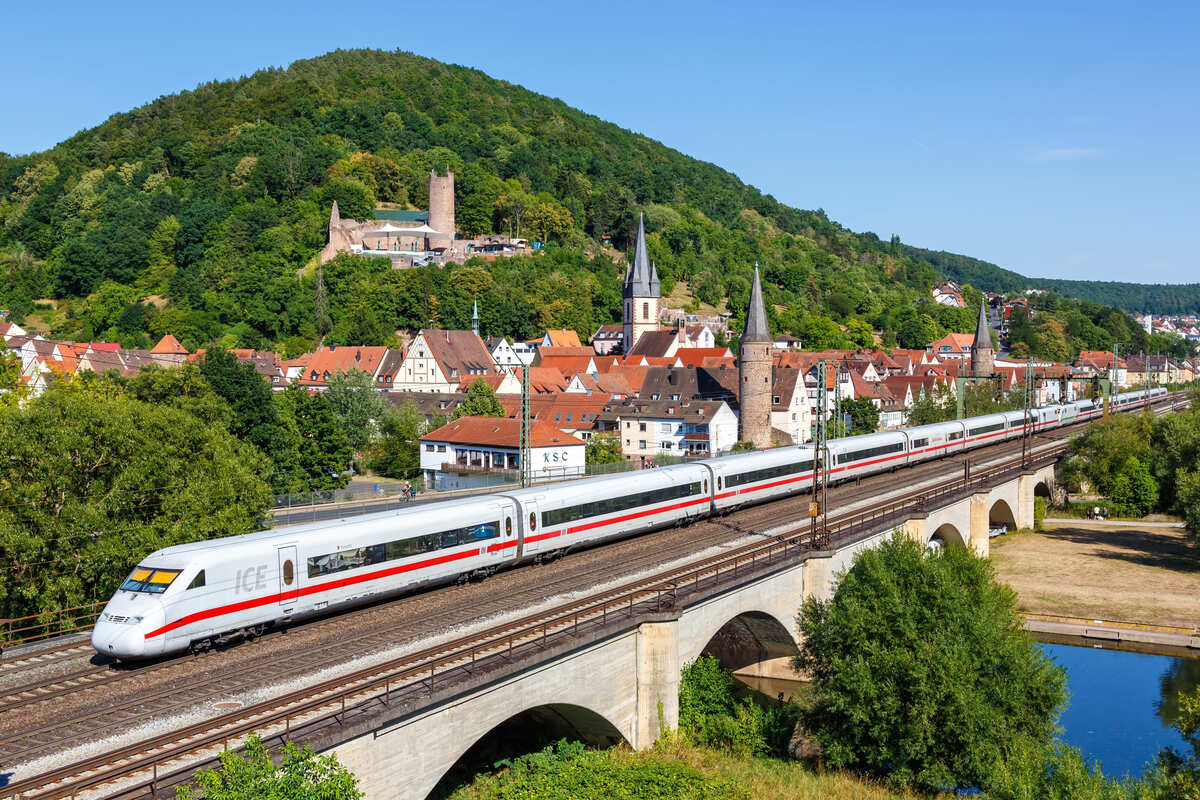
These 2 Beautiful European Countries Are Offering Unlimited Train Travel For Only $55
Last Updated
Perhaps the most unlikely travel trend to have resurged in 2023, train travel is back in full force, with numerous countries across the globe either reinstating previously defunded routes, or even launching brand new ones – scenic rides across the Mayan Riviera, anyone?

Much of the action has been centered, however, in Europe: boasting a well-connected train network linking multiple countries, and with its goal to reduce carbon emissions in the medium-term drastically, the Old Continent has turned to the railway to boost tourism.
Now, both Germany and Hungary, two of Europe’s most beautiful destinations, are offering unlimited all-you-can-travel train passes for around $55, and if we were you, we wouldn’t want to miss out, especially when there is no way of telling how long the generous offers will last.

One can always use some further encouragement, so perhaps it’s worth mentioning there is an additional third country you can travel in for free, and it is just as fascinating as the other two.
Lucky for you, this mysterious, hugely-underrated destination is only a stone’s throw away from the German border.
First of all, let’s have a look at the German and Hungarian offers.
How Does The German Pass Work?

Germany launched their €49 ticket, equaling roughly $55, last March.
The measure, believed to be temporary at the time, proved so successful the Government has continued applying it, and it looks set to become permanent, with Transport Minister Volker Wissing referring to it as the ‘biggest public transport reform in German History’.
The Deutschlandticket, as it is formally called, or simply ‘Germany Ticket’, allows holders to travel as many times as they want, on any regional public transportation routes, across almost the entire country for a set monthly price.

With that being said, its validity applies mostly to local and medium-distance transportation, such as metropolitan regions or intra-state travel, and it functions as a digital subscription that can be canceled ahead of the next month’s billing.
Essentially, subscribers can board any short and medium-distance buses and trains they would like during their subscription period, based on the region of Germany they are currently traveling.
For instance, those using the pass in metropolitan Berlin can now travel from the German capital to the neighboring State of Brandenburg freely, without paying additional fees, as Brandenburg would be considered short to medium-distance travel.

On the other hand, pass holders cannot board trains from Berlin to Frankfurt or Berlin to Cologne without booking an independent train ticket, as it would entail boarding a long-distance train.
This is true for all long-distance routes, including any trains operated by DB Fernverkehr AG, RE included, and FlixTrain (IC, EC, and ICE).
Ticket validity varies per region, and it all depends on where the pass is purchased and, most importantly, which region it is linked to and where it is activated.

Still, it is a great way to save money traveling in Germany as the overall cost of multi-city train journeys within a single state, such as Bavaria, home to Munich, Nuremberg, Regensburg, Würzburg, Bamberg and other popular historical hotspots will normally cost a lot more than $55 without a pass.
Additionally, pass holders can hop on certain eligible trains from/to stations in neighboring countries when operated by a German operator and when the pass is associated with the state or region of entry.
These include Tønder in Denmark, Wissembourg in France, Basel in Switzerland, and Świnoujście in Poland.

Tickets can be purchased directly from Germany’s national Deutsche Banh or from local transport providers in different cities.
What About Hungary?
As for Hungary, two travel passes are available, one nationwide and one for counties.
Traveling across the Eastern European gem, tourists can purchase a ‘National Travel Card‘, granting them access to not only every train but every bus line in the country, as long as the following companies operate it:

- MÁV-START
- MÁV-HÉV
- GYSEV
- Volánbusz (buses only)
For the duration of the pass, which lasts 30 days, you are free to city-hop at leisure, from the stately Austrian-Hungarian thermal pool hotspot that is Budapest to the serene Lake Balaton, known as the ‘Hungarian Sea’, to the ancient cultural hotspot of Pécs, near the Croatian border.

Much like the Germany Ticket, Hungary’s national pass costs only 18,900 Hungarian forint, or approximately $55, and foreign visitors are eligible to buy them at more than 1,100 ticket booths around Hungary.
All you have to do is simply walk into any train station, find the nearest MÁV-START, GYSEV, or Volánbusz office, or simply a vending machine, and select the option that best suits you.
It is worth noting this pass cannot be used in municipal services, meaning you cannot use it for taking the tram or metro in the wider metropolitan zone of Budapest, or any regional public transportation in any specific Hungarian city.

In a way, it is the opposite of the German pass.
Fortunately, Hungary then introduced a ‘County Travel Card’, allowing holders unlimited bus and rail travel in one of its 19 counties. It costs roughly $27, and it’s the perfect option for tourists looking to stay in a single location for a while longer.
This option is sure to make digital nomads happy, as Budapest is quickly becoming one of the world’s top nomad destinations, and they often reside in the city for between one to three months at a time.

If you are a student, you should know you are eligible for a 90 percent discount buying these tickets, so make sure you bring a valid international student ID mentioning your status.
What About The Third Mysterious Country?
There is still one country missing, after all.
$55 all-you-can-travel train passes sound great, but how about unlimited free travel for both residents and tourists alike?

Luxembourg is currently the only European nation to extend this privilege to non-tax-paying visitors, as they can hop on any train or bus of their liking around the principality without pre-booking and explore one of the prettiest, most fairytalish destinations extensively sans exorbitant ticket fees.
You read that right, no ifs or but’s or caveats:
This is all-encompassing free public transportation, regardless of route, train line, or distance, applying to all nationalities, provided it is a national route that does not cross Luxembourg’s borders with France, Germany, or Belgium.

Some of the top sights to see in ‘Lux’, as Europeans commonly call it, include Luxembourg City, the compact national capital, famous for its landmark medieval fortress and cobbled historic center, Vianden, where one of the largest and most impressive medieval castles sits, and the charming central town of Ettelbruck.
As Luxembourg is a tiny country, you can cover much of the territory in three to five days, making it a perfect intermediate destination on your cross-country European trip.
Read More:
Top 5 Travel Insurance Plans For 2023 Starting At $10 Per Week
How To Easily Earn Points For Free Travel
↓ Join Our Community ↓
The Travel Off Path Community FB group has all the latest reopening news, conversations, and Q&A’s happening daily!

SUBSCRIBE TO OUR LATEST POSTS
Enter your email address to subscribe to Travel Off Path’s latest breaking travel news, straight to your inbox.
This article originally appeared on TravelOffPath.com

